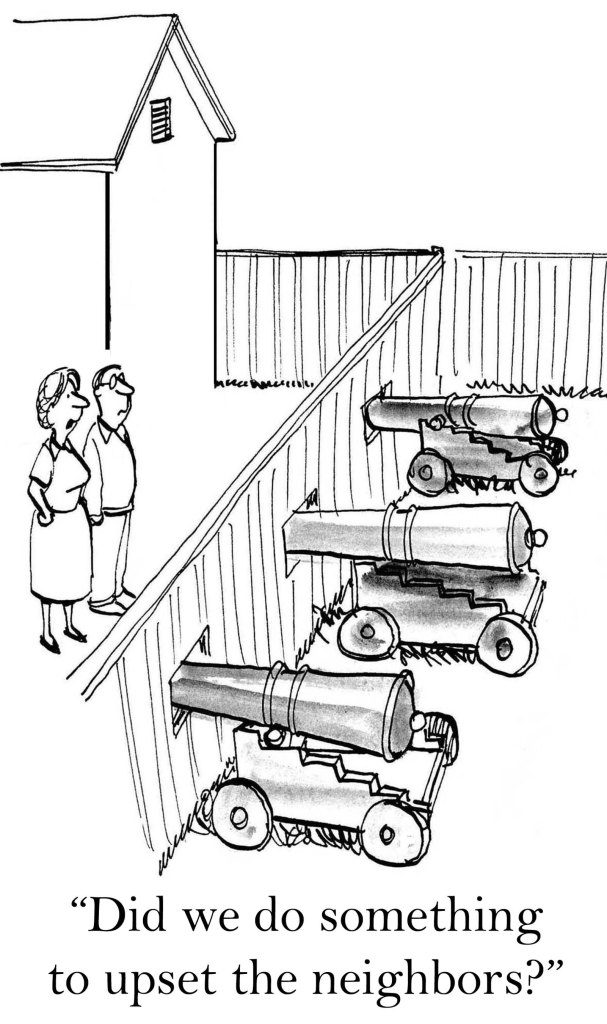Lori Ballen, the owner of this website, benefits from purchases made through her affiliate links.
As an Amazon Associate, I earn from qualifying purchases. Some links on this site are affiliate links. Portions of this content are generated by AI.
You may be able to ignore the trash and thigh-high grass in your neighbor’s yard, but a home appraiser won’t. A bad neighbor can bring down the price of a house by as much as 10%, according to the Appraisal Institute.
That’s a dire situation to be in if you are trying to sell your home in Las Vegas today. So what, exactly, constitutes a bad neighbor in the home selling scenario, and what can a seller do about the situation?
Nuisance neighbors push down prices
“External obsolescence” – that’s appraisal speaks for anything outside a homeowner’s control that affects value. Any neighborhood nuisance, from an overgrown yard to barking dogs, falls into this category.
Some issues are not always apparent and you can get away with them.
So a cranky neighbor who has never had a good word to say about you in his life is going to be less easy to spot than a yard cluttered with rusty cars. Bad neighbors can knock between 5 and 10 percent off a home’s value, depending on the severity of the problem.
In general, the nuisance neighbor in an exclusive neighborhood will have a bigger impact than they would in a neighborhood where overgrown yards are the norm.
Objectionable and illegal are not the same thing
Home sellers can sort out some neighborhood nuisances with help from the local municipality.
Persistent late-night music, for example, may violate local noise ordinances, and most cities have ordinances against unlicensed cars or dumpsters. But what an appraiser finds objectionable from a valuation perspective is not necessarily illegal.
A common example is a disruption caused by heavy building works on a neighboring plot of land that may have all the official permits.
In this scenario, you may have to come up with a creative solution to the problem, such as asking the neighbor to write a letter confirming the build schedule and confirming that no noisy work will be carried out late at night.
Start the ball rolling before you list
Home sellers have one goal: to sell their home as quickly as possible at the best possible price. Nuisance neighbors obstruct that goal.
One sniff of trouble and most buyers will look elsewhere – or negotiate a hefty discount from the price. So you need to fix the problem before you list your home for sale.
Often, a friendly chat is all it takes to solve the problem.
Many nuisance neighbors don’t even know they are causing you distress and will bend over backward to rectify the situation.
Offer to fix things yourself
Some problems, such as a broken window pane or overgrown grass, are easily fixed.
You could wait around for your neighbor to get his house in order – or you could offer to do it yourself. If the thought of helping out a difficult neighbor is galling, remember your goal.
You want to sell your house quickly, for full market value. If a few hours of hard work or a couple of hundred dollars paid to a handyman is what it takes to achieve a sale, so be it.
Incentivize a noisy neighbor to play ball
Few appraisers will devalue a property because a neighbor makes a lot of noise. Appraisers have to give solid, objective evidence for why they arrived at the value they did, and noise is a subjective issue.
That said, an obviously noisy neighbor can deter buyers who come to view your property. Tell your neighbor when you schedule a showing. Ask them to keep the noise down during these times.
If barking dogs are a problem, get your kids to take them for a walk during showings. A $100 gift card is a lovely way to “thank” a neighbor who plays ball.
Speak to your agent about your a duty of disclosure
To sell your home, you must fill out a seller disclosure statement, answering a suite of questions about your home.
Disclosures vary between states, but the disclosure form will almost always ask you about nuisances in and around the neighborhood.
The difficulty here is what constitutes a nuisance. Actions that are clear code violations are public nuisances and you should disclose them.
You may not have to disclose a problem neighbor who has not acted illegally and whose only beef is with you.
The question here is one of degree. If the problem with your neighbor is so bad that you have repeatedly called the cops or the city, then this is a “material fact” that would affect a buyer’s decision to buy a home, and you must disclose it.
A small issue of overgrown grass probably does not have to be disclosed. Do tell your agent what has been going on – she has seen it all before and can tell you what you need to tell buyers to protect yourself legally.
Call 702.604.7739 to speak with someone about selling your property.
As an Amazon Associate, I earn from qualifying purchases. Some links on this site are affiliate links. Portions of this content are generated by AI.
